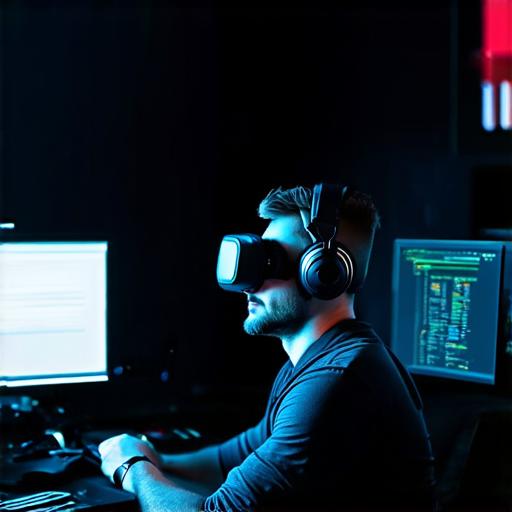
What skills are essential for a career in virtual reality?
Virtual reality (VR) is an emerging technology that is rapidly changing the way we interact with the digital world. With VR, people can experience immersive environments and interact with objects in a way that was previously impossible. As a virtual reality developer, you have the opportunity to be at the forefront of this exciting new field. However, with so much competition and innovation happening in VR, it’s important to have the right skills to succeed in your career.
1. Technical Skills
As a virtual reality developer, you need to have a solid understanding of programming and software development concepts. You should be proficient in programming languages such as C++, Java, or Python, and have experience working with VR development tools such as Unity or Unreal Engine. In addition, you should have knowledge of computer graphics, physics engines, and human-computer interaction (HCI) principles.
2. Creativity and Design Skills
Virtual reality experiences require a high level of creativity and design skills. You need to be able to envision the user experience and create immersive environments that engage users. This requires a strong understanding of art, design, and user experience (UX) principles. You should also have experience working with 3D modeling software such as Maya or Blender, and be familiar with concepts such as lighting, texturing, and animation.
3. Problem-Solving Skills
Virtual reality development is a complex field that requires strong problem-solving skills. You will encounter a variety of challenges throughout the development process, including optimizing performance, fixing bugs, and troubleshooting issues with VR hardware or software. You should be able to think critically and approach problems systematically to find solutions that meet the needs of your users.
4. Communication Skills
As a virtual reality developer, you will need to communicate effectively with a variety of stakeholders, including clients, team members, and end-users. You should be able to articulate your ideas clearly and concisely, and be able to listen actively to feedback and suggestions from others. You should also have experience working in a team environment, collaborating with others to achieve shared goals.
5. Adaptability and Learning Skills
Virtual reality is a rapidly evolving field, and as a developer, you need to be adaptable and willing to learn new skills. You should be able to quickly learn new technologies and tools, and stay up-to-date with the latest developments in VR. You should also be comfortable working independently and taking on new challenges as they arise.

Case Study: A Virtual Reality Developer’s Journey
John was a recent graduate with a degree in computer science, and he had always been fascinated by virtual reality. He landed his first job as a virtual reality developer at a startup, where he worked on creating immersive experiences for a variety of clients.
At first, John struggled to keep up with the demands of the job. He had little experience working in VR development, and he found it difficult to navigate the complex tools and technologies that were required for the job. However, John was determined to succeed, and he spent every spare moment learning new skills and practicing his craft.
Over time, John’s skills improved dramatically. He became proficient in programming languages such as C++ and Java, and he learned how to use Unity and Unreal Engine with ease. He also developed a strong understanding of computer graphics, physics engines, and HCI principles, which allowed him to create more immersive and engaging experiences for his clients.
Despite the challenges that he faced, John was able to make valuable contributions to the team. He was able to troubleshoot issues with VR hardware or software, and he worked collaboratively with other developers to ensure that projects were completed on time and within budget.
Conclusion
Virtual reality development is a highly rewarding field that offers exciting opportunities for innovation and creativity.


